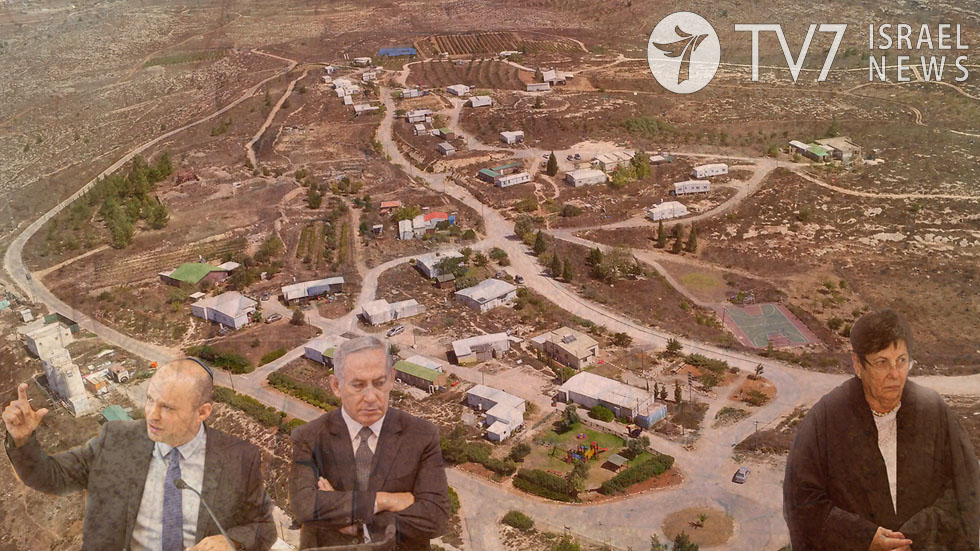Israel’s High Court of Justice rejected a request submitted by Prime Minister Benjamin Netanyahu’s government to extend a deadline for the evacuation of the illegal Jewish outpost of Amona. The court wrote in its ruling that the request by the government, which is based mostly on considerations that have already been ‘taken into consideration’ in the original ruling, constitutes in effect an attempt to change the decision made,” a step which the court said it “cannot accept.” In December 2014, then-Supreme Court President Asher Grunis ruled that homes built in Amona were constructed on private Palestinian land, and shall be demolished within two years, with the evacuation date set for the 25th of December, 2016. The state requested last month to postpone the evacuation to allow time to examine alternative solutions for its residents. In its petition, the state claims it is seeking to carry out the evacuation peacefully and without incidents, but that it is unable to provide alternative living solutions for residents within the next two months. The state emphasized that if the court rejects the request, it will be prepared to carry out the evacuation by the date set in its ruling.
Prime Minister Benjamin Netanyahu addressed the Amona situation at a meeting of his Likud faction, but refused to comment on the High Court’s decision. Netanyahu stressed that the government is “aware of the distress of Amona’s residents and are acting in different manners to resolve the problem.” One of the options to resolve the issue at hand, is by pushing forward the “regulation bill,” which seeks to retroactively legalize Israeli construction built on what the court defines as “privately owned Palestinian lands” so-long they were built with no intention of breaking the law, while providing the land owners with ‘generous compensation’. The United States described as “troubling” the Regulations Bill, which was supported by Israel’s ministerial committee earlier this week and said it hoped the law does not pass.
“We’re deeply concerned about the advancement of legislation that would allow for the legalization of illegal Israeli outposts located on private Palestinian land. Israel’s own attorney general has reportedly expressed serious concerns about the constitutionality of the proposed legislation. If this law were enacted, it could pave the way for the legalization of dozens of illegal outposts deep in the West Bank. This would represent an unprecedented and troubling step that’s inconsistent with prior Israeli legal opinion and also break longstanding Israeli policy of not building on private Palestinian land. Our policy, as you know, on settlements is clear. We believe they are corrosive to the cause of peace. This legislation would be a dramatic advancement of the settlement enterprise, which is already gravely endangering the prospects for a two-state solution. This only makes the clearer the choice Israel faces between building more settlements and preserving the possibility of peace. I would note we understand this legislation has several more steps to go before it’s passed. We hope it does not become law,” said Elizabeth Trudeau, US State Department spokesperson.
Meanwhile, residents of the West Bank settlement of Amona called for an emergency gathering last night, during which they appealed directly to Prime Minister Netanyahu, to push forward the “regulation bill” that would legalize their settlement, and revoke the High Court’s decision to evacuate them from their homes. Tamar Nivri, a resident of Amona for nearly 20 years, warned in an interview to Israeli media that there would be violence against IDF soldiers, should they come to remove the outpost. Nivri stressed that there are orders and laws, and there is reason and basic human morality. He added that in the State of Israel, it’s inconceivable for Jews to be expelled from their land.” Nevertheless, Pro-Amona campaign leader Avihai Bo’aron said in response that “the settlers’ leadership will act to ensure that things will not spill over into violence.”
